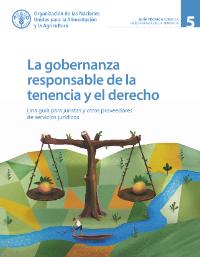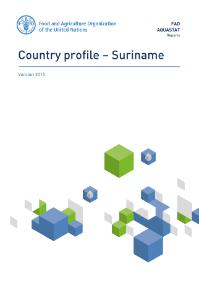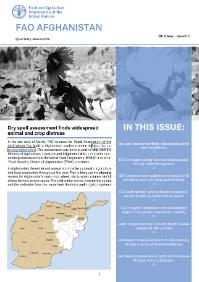Focal point
Location
The Food and Agriculture Organization of the United Nations leads international efforts to defeat hunger. Serving both developed and developing countries, FAO acts as a neutral forum where all nations meet as equals to negotiate agreements and debate policy. FAO is also a source of knowledge and information. We help developing countries and countries in transition modernize and improve agriculture, forestry and fisheries practices and ensure good nutrition for all. Since our founding in 1945, we have focused special attention on developing rural areas, home to 70 percent of the world's poor and hungry people.
Members:
Resources
Displaying 381 - 385 of 5074The Bahamas and FAO
The Bahamas became an FAO member state in 1975. Cooperation has focused on strategic development and increased competitiveness of the country’s agriculture and fisheries sector, with FAO interventions comprising policy and legislative support, technical development projects and rehabilitation and emergency assistance. As a flat and small island developing state (SIDS), the Bahamas is very vulnerable to the impacts of climate change, which makes resilience building an important element of cooperation today.
La gobernanza responsable de la tenencia y el derecho: una guía para juristas y proveedores de servicios jurídicos
Esta guía técnica presenta un análisis de las dimensiones jurídicas de las Directrices voluntarias sobre la gobernanza responsable de la tenencia de la tierra, la pesca y los bosques en el contexto de la seguridad alimentaria nacional y su relación con el derecho internacional vinculante.
Country profile – Suriname
This country profile describes the state of the water resources and water use, as well as the state of agricultural water management in Suriname. The aim of this report is to describe the particularities of the country and the problems met in the development of the water resources, and irrigation in particular. Irrigation trends, existing policies and legislation to water use in agriculture, possible treaties and agreements between countries as well as prospects for water management in agriculture are presented, as described in literature.
Essai de présentation des tendances d’évolution du droit pastoral en Afrique de l’Ouest
La présente étude est un e tentative de présentation des tendances d’évolution en Afrique de l’Ouest du droit pastoral en général, et des législations pastorales en part i culier. Elle porte sur un échantillon de pays suivants choisi s uniquement sur la base d’un e grande similitude des règles juridiques et institutionnelles, ainsi qu e des pratiques traditionnelles et coutumières en vigueur: Burkina Faso, Guinée, Mali, Mauritanie, Niger et Sénégal. L’objectif poursuivi est essentiellement la co nnaissance de s grandes tendances actuelles des législations pastorales .
FAO Afghanistan Quarterly Newsletter, June 2018 - Issue#13
This newsletter, Volume 13, highlights the most interesting accomplishments of FAO Afghanistan for the months of April - June 2018.











